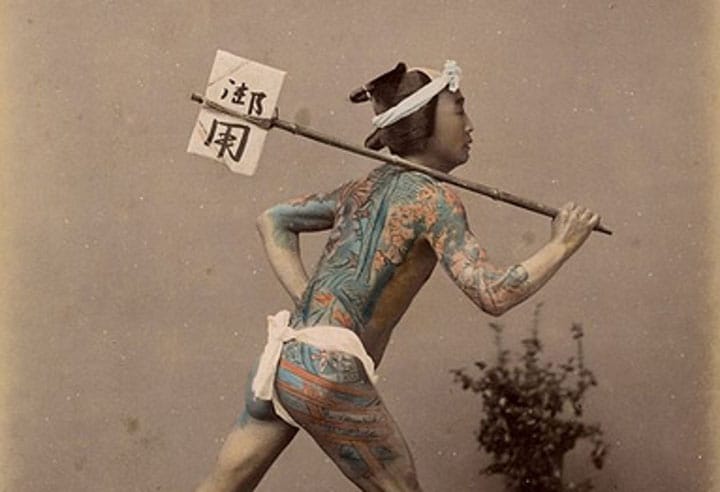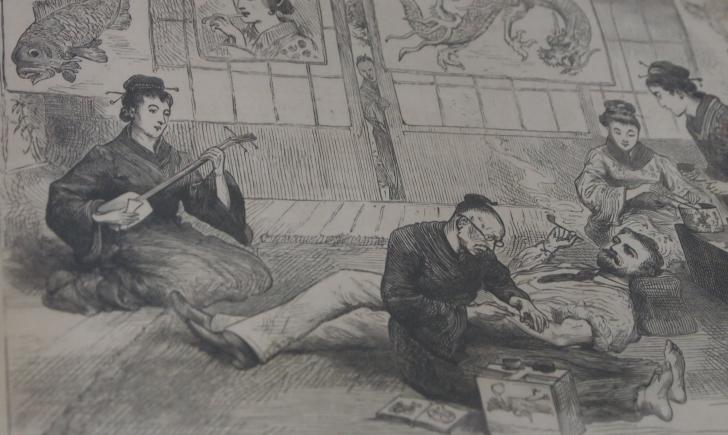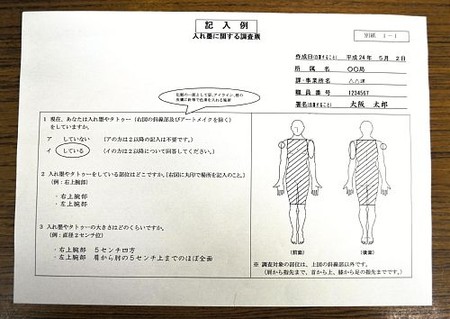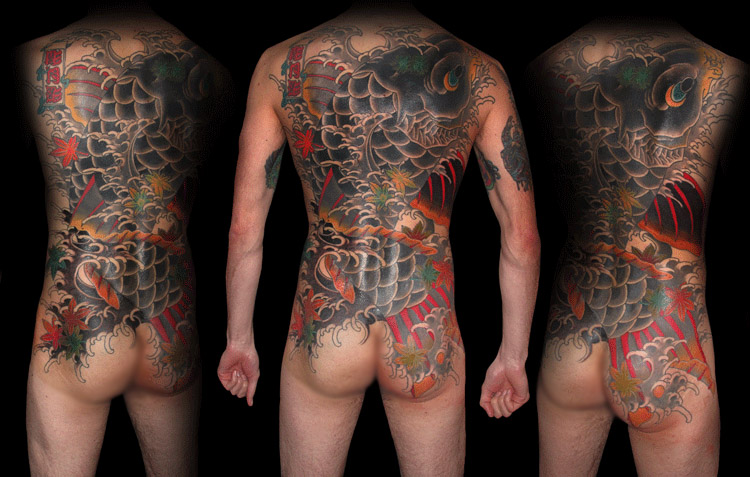Tattoos are a bit of a taboo subject in my family. The slightest mention of a tattoo will send my father into a whirl of serious defense, the only thing he will ever ban me from getting. This denial draws my interest even more, and while I have never gotten a tattoo (and probably never will), I wanted to know more about WHY there is such a stigma surrounding tattoos in Japanese culture.
…
If you are traveling in Japan and have tattoos, there are many places (bathhouses, gyms, etc.) that will not allow you to enter. Most people can get away with it if their tattoos are not visible, or if they are easily covered with a long shirt or pants. However, in traditional Japanese bath houses, there’s nowhere to hide (you’re naked).
Where does this anti-tattoo mindset come from?

Tattoos have been in Japan for thousands of years. The earliest evidence comes from clay figurines that had tattoo marks on the face, from 5000 BC or older. In ancient scripts, Japanese tattooing is mentioned, but since Chinese history associated tattooing with barbarism, so did Japanese. As history continued, tattooing became a form of punishment for serious crimes, and a way to mark criminals. Tattooed individuals would be excluded from the community and shunned by their families.
Tatted criminals began to cover up their penal markings with larger, more decorative tattoos. Around the same time, the legal system had moved on to new forms of punishment. Many say that this crossover is the origin of associating organized crime with tattoos in Japan.
At one point, not wanting to seem barbaric to foreigners, tattoos were completely outlawed in Japan, and the enforcement became more strict as interaction with the West increased. Ironically, the laws allowed Japanese artists to tattoo foreigners, which lead to artistic masters and renowned studios. They became incredibly famous, drawing distinguished clients like dukes and czars. Tattoos only became legalized after WWII.

The intricate design and spectacular quality of Japanese tattoos are still famous to this day, and many masters practice privately, by appointment, or through connections.
Japanese who have tattoos today are faced with harsh criticism. Many companies require employees to log and describe their tattoos. Those who confess may have to cover their ink during working hours, be transferred to jobs away from public view, or could even lose their jobs.

Younger generations in Japan are becoming increasingly acceptant of tattoos, likely a side-effect of westernization. There is even a popular trend to get small, inconspicuous tattoos, though it’s quite edgy. Still, if you have visible tattoos and are traveling Japan, expect blatant gawks, stares, and occasional discrimination.
Don’t let that deter you from visiting the incredible country. If your tattoo is small, you can get away with just covering it up. Even in a bath house, if you can slap a patch on it, it’s likely to be overlooked. If you have larger tattoos, you may be asked to leave, or not be allowed to enter. Call ahead to ask about the company’s policy.
…
[WARNING: BUTTS]
.
.
.

The artwork itself is some of the most detailed work i’ve ever seen. The coolest tattoo I have come across lives on the asscheek of one of my coworkers, completed during our Japan leg. (Not pictured in the photo above)
Traditional Japanese tattoos usually involve a large central piece, extending out across the limbs. Often covering huge areas, these giant tattoos can take years to complete. The actual style and motifs that inspire the Japanese artwork style requires an entirely separate blog post.
…
As for me, I’ll continue to admire tattoos… on other people.
…
4/31 #YearOfChallenge

Interesting post!
I wonder, are there any additional reasons aside from the association of barbarism via Chinese belief linked to the stigma? Like is there also a belief that the ink is impure? Or that it is a grotesque modification to the natural body? Or is it purely that the indelible mark of a tattoo = a delinquent?